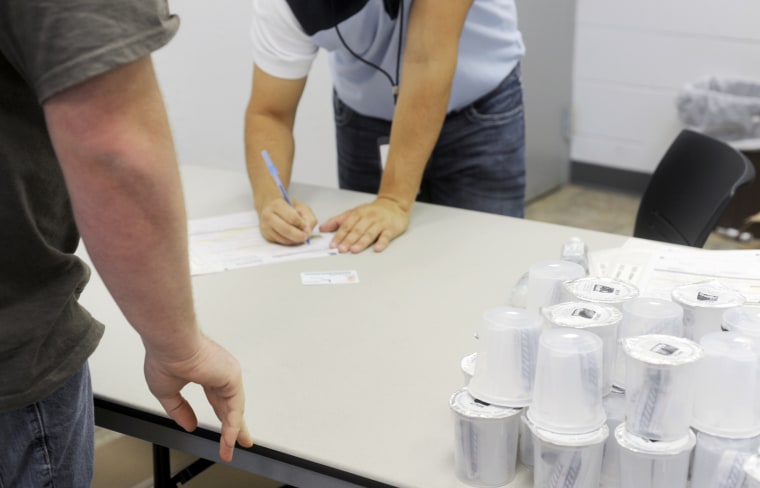It's become something of a fad among conservative policymakers: what the country really needs is drug testing for low-income Americans who rely on the social safety net. This week, as the NBC affiliate in Huntington reported, the policy reached West Virginia.
Gov. Earl Ray Tomblin has approved a drug-testing proposal for some West Virginia welfare applicants. The Democratic governor signed off Wednesday on the three-year statewide drug-testing pilot program for Temporary Assistance for Needy Families Program applicants. The Republican-led Legislature passed it.
The way the policy is structured, caseworkers will be responsible for determining which welfare applicants trigger a "reasonable suspicion" of drug use. Failing a test once will require substance-abuse treatment; failing a test more than once will cost applicants' benefits.
One proponent of the measure, Republican Delegate Scott Cadle, argued during the legislative debate, “I expect people who live off my tax money to be drug tested."
Except, strictly speaking, that's not quite true. West Virginia has plenty of government contractors who receive public funding, and they won't be drug testing. More to the point, state employees -- including elected members of the state legislature -- also "live off" their taxpayer-financed salaries, but they won't be subjected to drug testing, either.
All of the usual problems we've discussed before still apply. The Wall Street Journal reported in 2014, for example, that when it comes to welfare recipients, “few” applicants have been caught up in the “drug-screening net.”
How few? The piece noted that in Arizona, between 2011 and 2014, over 108,000 people seeking benefits were subjected to drug screening. A grand total of 2 applicants were disqualified due to testing positive. I don’t mean 2 percent; I mean literally 2 individual people. The results in other states vary, but the low positives aren’t unique to Arizona.
There are also all kinds of practical considerations, including legal concerns surrounding states requiring poor people to give up bodily fluids in exchange for benefits they’re entitled to.
But perhaps most striking of all are the ugly assumptions driving the policy itself. For many, especially on the right, it makes sense to assume those who are struggling are to blame for their plight. If you’re relying on food stamps to help your family keep its head above water, maybe there’s something wrong with your lifestyle. If you’ve fallen on hard times and need the public safety net, your state government should assume you have a drug problem.
Real-world evidence, however, points in a different direction.
